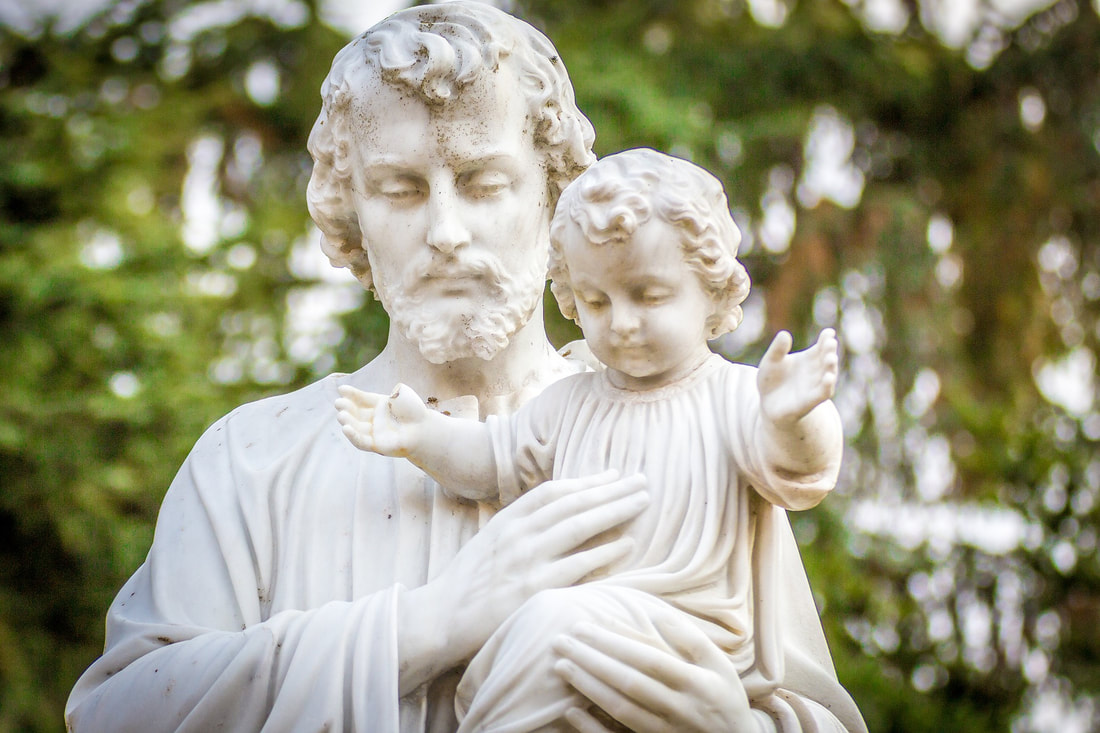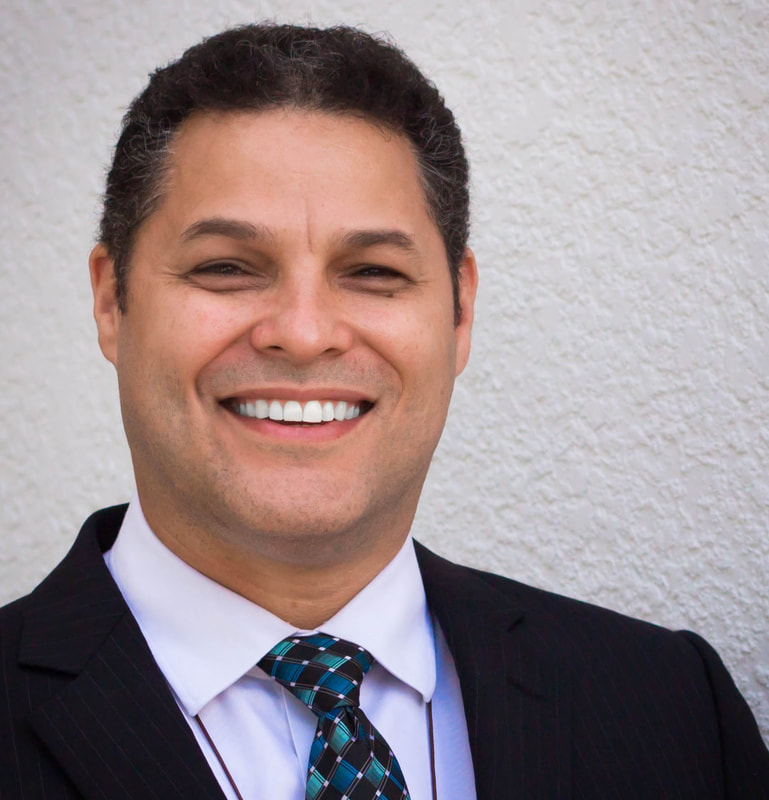ELISHEBA BLOGLaura, Ivonne, and Rick
write about their lives in the Eucharist. |
|
By: Rick Hernandez What does it mean to be a king? And I mean, a king in the Catholic sense, the way we are called to be as part of our office of priest, prophet, and king? The word king is directly related to and derived from the word kin, which means “family” or “of the same kind.” The word king originally meant “the leader of the kin” or, in more modern terms, “head of the family.” I like to think of a king this way, as the head of the family. The king is meant to provide for the needs of the family, help develop, protect, and nurture the kin. The king is ultimately responsible for his kingdom’s charges, and that is a lifelong calling. The images we get of a king from TV shows and modern novels paint a different idea of what a king is really supposed to be. Selfishness, incompetence, outsized pride, and covetousness are often portraited. Those are the opposites of the attributes that are necessary for a virtuous king. The life of this king is not supposed to be about his own needs, though those needs exist. This king is meant to be selfless. His life is meant to be about the needs of his kingdom, his people, his kin. He lives not for his own enrichment but for the betterment of others. It takes a lot of selflessness to make the lives of others the kingly mission. The most important attribute required is humility. The virtue of humility is defined by St. Thomas Aquinas as: “Keeping oneself within one’s own bounds, not reaching out to things above one, but submitting to one’s superior.” Saint Bernard presents his own definition of humility as: “A virtue by which a man, knowing himself as he truly is, abases himself. Jesus Christ is the ultimate definition of Humility.” To be humble is to know oneself but not hold oneself in higher regard than necessary. This is important. I was told long ago that when a man gets married, he becomes a king, but a different kind of king from what the world envisions, not a ruler but a servant. A new husband leaves behind his father and mother. He leaves behind the life that was only his, to take over the reins of a new domestic kingdom. United with his wife, they become a benign ruling entity over a new creation. Yet, this new kingdom is still an extended part of their original kin, continuing the old history and traditions. The husband, a future father, is now the guarding entity of this new family. What was, is. What is the job of the new king? It is to selflessly lead, love, and serve with Christ’s humility. To grow into sainthood and lead those under his care to the Kingdom of Heaven. When it comes to servant kings, I always think of the humblest one, our dear Saint Joseph…
As always, not much is known about the life of Saint Joseph, but we know he was a most humble man. He was chaste, faithful, hopeful, and loving. Saint Joseph was kind to his kin and obedient to his God-given mission. He sacrificed from his own life for the good of the family. We firmly believe that just as our Mother Mary was selected to mother the child Jesus, our dear Saint Joseph was also chosen to be the king of this kin, the head of this family. Saint Joseph is a perfect example of the humble servant, of the selfless king. Saint Peter Julian Eymard imagines Saint Joseph gazing upon his kingdom in profound adoration:
Through his relationship with Jesus, Saint Joseph was able to perform his kingly duty throughout his earthly life. Even now, Saint Joseph is available to us, still there to support us with our kingly duties whenever we ask. Society today has too many kingless families. It is not meant to be this way. We need husbands and fathers who strive to grow in humility, in responsibility, and in their commitment to the Godly mission. To become great kings, we must become humble servants, even slaves, and we must do it with a joyful heart, following after the actions of our Lord.
So, it is clear. We must not forget what the mission is, to raise our family, protect them, and lead them in the stead of our Heavenly King, that we may all be reunited in the Kingdom of Heaven. To do this, we must pray, unite ourselves to the One who loves us in the Eucharist, partake of His love for us, and listen to the wisdom of His Word. Let us grow in wisdom; let us embrace humility. Let us listen to our charges; they will tell us what they need. Let us listen to the Holy Spirit; He will tell us how to respond.
Our kingship must be active. Being a humble king is a responsibility that is assumed, but it needs our persistent commitment. Are we committed to being teachers and guides? Will we protect, correct, love, and participate in the lives of our charges as guides, the same way our Lord Jesus is our guide? This kingly life is a calling… a heavenly calling. With Saint Joseph’s help, how will we reply? Let us pray: Lord, help us be ever vigilant towards our duties as heads of our families. Help us to gain wisdom, knowledge, and understanding. Helps us to grow ever-humble that we may become the servant kings you call us to be in your image. Help us look up to your foster father, Saint Joseph, as an example of true kingship and Eucharistic spirituality. Help us to grow closer to what you have called us to be and that the ones under our charge can grow ever closer to You, for that is what we desire the most for them, a rich life in You. Amen.
0 Comments
Your comment will be posted after it is approved.
Leave a Reply. |
Categories
All
FOLLOW US ON SOCIAL MEDIA:
AuthorsWe are Ivonne J. Hernandez, Rick Hernandez and Laura Worhacz, Lay Associates of the Congregation of the Blessed Sacrament, and brothers and sisters in Christ. |
Copyright © 2024 Elisheba House Inc.
Elisheba House is a 501(c)(3) non-profit organization. Federal Tax ID Number 84-1894146
Florida registration for Solicitations of Contributions #CH71652
A COPY OF THE OFFICIAL REGISTRATION AND FINANCIAL INFORMATION MAY BE OBTAINED FROM THE DIVISION OF CONSUMER SERVICES BY CALLING TOLL-FREE (800-435-7352) WITHIN THE STATE. REGISTRATION DOES NOT IMPLY ENDORSEMENT, APPROVAL, OR RECOMMENDATION BY THE STATE.
Florida registration for Solicitations of Contributions #CH71652
A COPY OF THE OFFICIAL REGISTRATION AND FINANCIAL INFORMATION MAY BE OBTAINED FROM THE DIVISION OF CONSUMER SERVICES BY CALLING TOLL-FREE (800-435-7352) WITHIN THE STATE. REGISTRATION DOES NOT IMPLY ENDORSEMENT, APPROVAL, OR RECOMMENDATION BY THE STATE.





 RSS Feed
RSS Feed